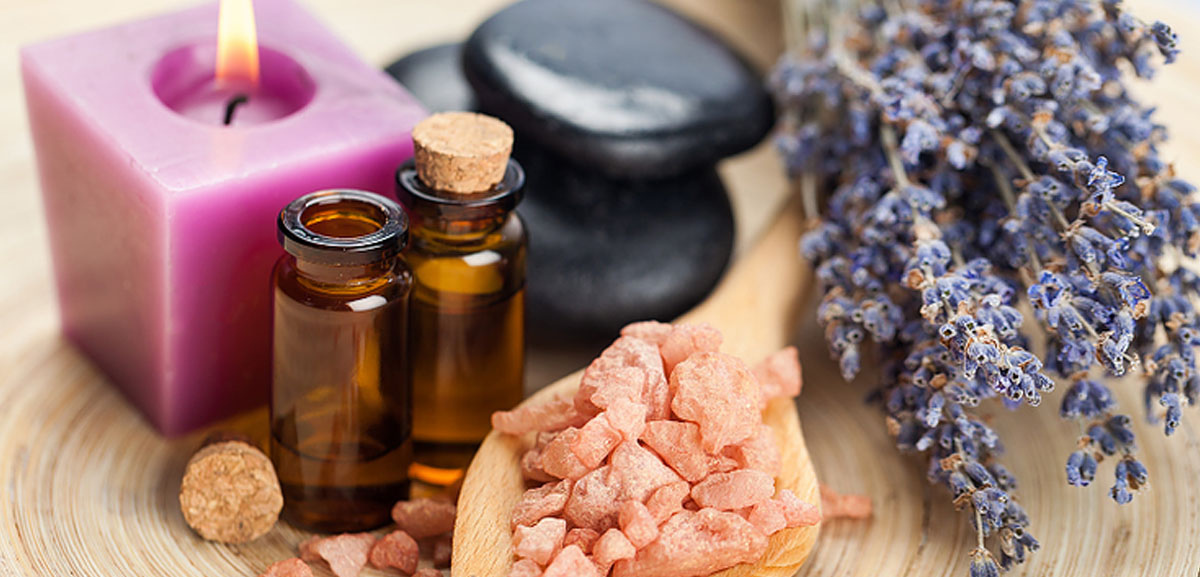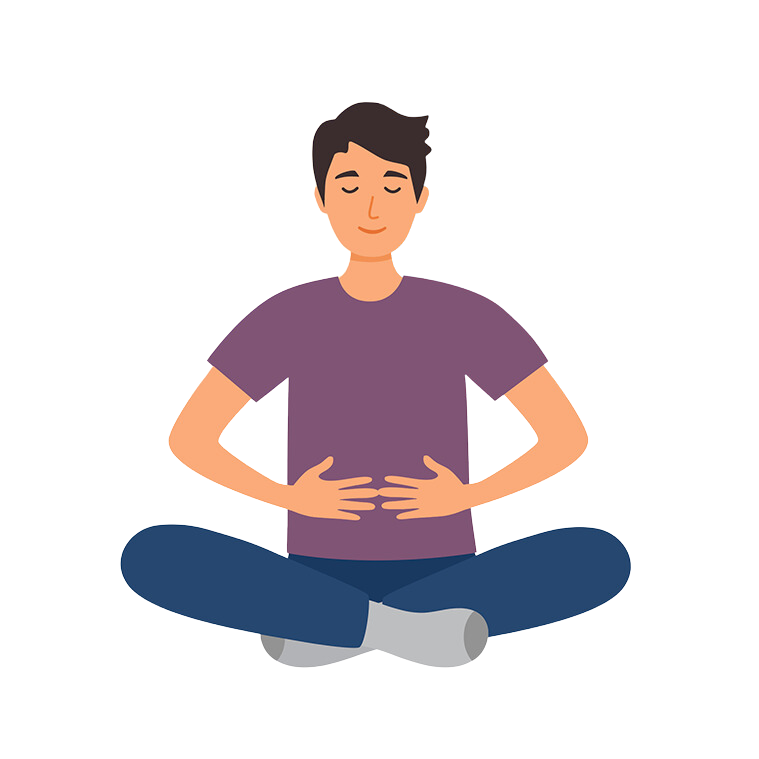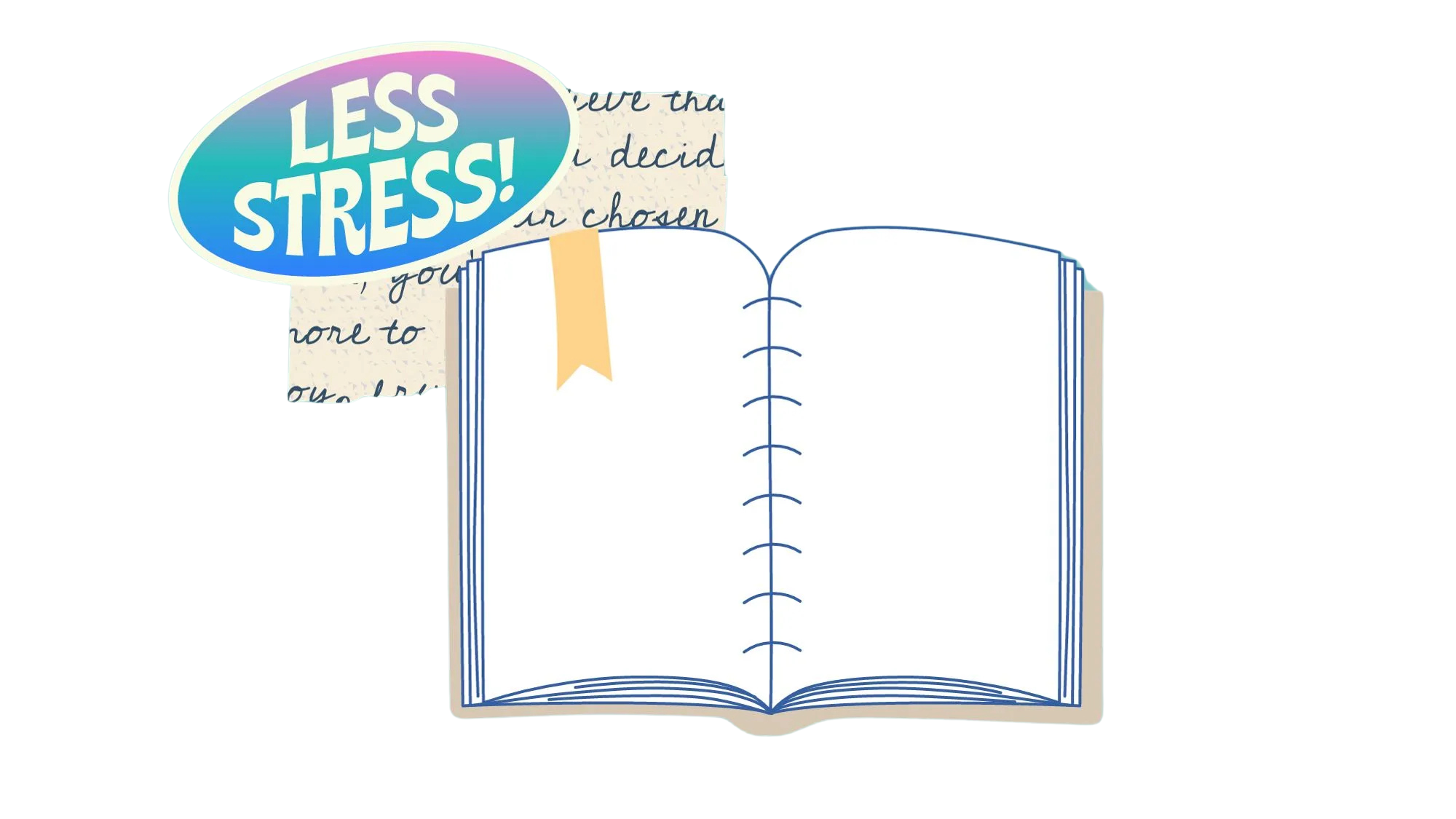Introduction
Stress Management with Natural Remedies
Stress management is crucial for overall well-being, and natural remedies can offer effective solutions. Whether it’s work pressure, personal challenges, or everyday responsibilities, stress can take a toll on both our mental and physical health. Conventional treatments, such as medications and therapy, are commonly prescribed, but many individuals are exploring Natural Remedies as an alternative or complement to these approaches.
To explore more about stress management techniques, visit WebMD’s Stress Management Guide. But the question remains: Do these Natural Remedies truly work?
In this blog, we’ll delve into the world of Natural Remedies for stress relief, exploring their effectiveness and providing practical advice on incorporating them into your daily routine. By understanding the science behind these remedies and their potential benefits, you’ll be equipped with the knowledge to make informed choices for managing stress in a healthier, more holistic way.
How Natural Remedies Can Help
Holistic Benefits: Unlike conventional medications, natural remedies often focus on promoting overall balance and relaxation, reducing the risk of side effects. These remedies are accessible and can be incorporated into everyday life without significant expense.
Personalized Care: Tools like MyChart Main Line Health and MyChart Salem Health allow individuals to track their progress and share insights with healthcare professionals, ensuring that natural remedies are effectively complementing traditional treatments.
Addressing Health Disparities: Organizations such as Peninsula Alternative Health and healthcare providers focused on underserved areas, like those addressing San Bernardino health disparities, are increasingly emphasizing natural remedies for stress relief as part of a holistic approach to care.
Global Influence: From aromatherapy to mindfulness, even members of the global elite—like advocates for wellness such as Prince Charles Health—endorse the benefits of incorporating natural remedies into daily life.
Incorporating Natural Remedies
- Mindfulness and Relaxation: Practice mindfulness meditation, yoga, or deep-breathing exercises. These techniques have been scientifically proven to reduce stress levels.
- Herbal Solutions: Remedies such as chamomile tea, lavender essential oils, and ashwagandha supplements may promote relaxation and help alleviate stress.
- Nutrition and Hydration: A balanced diet with stress-reducing foods like nuts, leafy greens, and berries can provide natural support for mental clarity and emotional resilience.
- Professional Advice: Always consult with your doctor or a qualified healthcare professional before starting any new remedy. Utilizing platforms like MyChart Salem Health makes it easier to discuss these options with your provider.
By incorporating these remedies and leveraging tools like MyChart Main Line Health, you can create a tailored plan to manage stress and improve your overall quality of life.
1. Understanding Stress

Stress is a natural reaction, but chronic stress can have serious health consequences. For a deeper understanding of stress, visit WebMD’s Guide to Stress. This physiological and psychological process is triggered by both physical and emotional factors, leading to changes in your body’s systems that help you cope with perceived threats. However, while stress can be beneficial in short bursts—helping you stay alert and focused—chronic stress can have detrimental effects on both your mental and physical health. Incorporating Natural Remedies into your routine can help counteract the negative impact of chronic stress.
By turning to Natural Remedies, such as mindfulness practices or herbal supplements, you can reduce stress levels without relying solely on conventional treatments. These Natural Remedies provide a holistic approach, promoting long-term well-being and helping you manage stress effectively.
Understanding how stress works is a critical step in finding effective natural remedies. By recognizing how stress affects your body and mind, you can take proactive measures to manage and mitigate its impact.
Impact on Physical Health:
- Chronic stress can wreak havoc on your heart, digestive system, and immune function. Over time, it can increase the risk of heart disease, digestive disorders, and weakened immunity.
- The constant release of stress hormones like cortisol can elevate blood pressure, disturb gut health, and suppress immune responses, leaving the body more vulnerable to illnesses.
Mental Health Effects:
- Long-term stress is a major contributor to mental exhaustion, anxiety, and depression. The continuous strain can lead to feelings of overwhelm, irritability, and emotional instability.
- Stress can affect your mood, making it difficult to concentrate, feel motivated, or enjoy everyday activities.
Identifying the Source of Stress:
- The first step in managing stress effectively is identifying the source—whether it’s work, relationships, or lifestyle.
- Once the root cause is understood, you can tailor your approach to stress relief and focus on addressing the specific issues that contribute to your stress levels.
Understand the science behind stress at Healthline’s Stress Understanding Article.
2. The Link Between Stress and Your Health

The Connection Between Stress and Health: Understanding Its Impact
The connection between stress and health is undeniable, as it has far-reaching effects on both your emotional and physical well-being. Chronic stress can negatively impact both physical and mental health. To learn more about how stress affects your health, visit WebMD’s Stress and Health Guide. When stress becomes prolonged, it can trigger a cascade of negative physiological reactions that affect key organs and systems, leading to a range of health issues. Incorporating Natural Remedies into your lifestyle can be a proactive way to address and manage these stress-related imbalances.
Stress doesn’t just impact how we feel emotionally; it also manifests physically, influencing hormonal balance, immune function, and even cellular health. By exploring Natural Remedies, such as meditation, yoga, or herbal supplements, you can combat the harmful effects of stress more holistically. The body’s prolonged fight-or-flight response can lead to persistent inflammation, disrupted sleep patterns, and even metabolic imbalances, but Natural Remedies offer a gentle and sustainable solution.
Incorporating Natural Remedies like aromatherapy or dietary changes can enhance the body’s resilience to stress, promoting a healthier mind-body connection. Whether it’s through mindfulness techniques or plant-based therapies, Natural Remedies provide a valuable alternative to solely relying on traditional treatments, ensuring a balanced approach to overall well-being.
How Stress Impacts Your Health
Impact on Hormonal Balance:
Chronic stress triggers the release of cortisol, the primary stress hormone, which, over time, can cause hormonal imbalances. High levels of cortisol can interfere with sleep cycles, appetite regulation, and even thyroid function, leading to energy depletion and weight fluctuations.
Weakened Immune System:
Continuous stress compromises the immune system, making the body more vulnerable to infections and diseases. Cortisol suppresses the production of essential immune cells, weakening the body’s ability to fight off pathogens. This can lead to more frequent colds, infections, and longer recovery times. San Ysidro Health emphasizes the importance of supporting the immune system with natural treatments and preventative care.
Mental Health Consequences:
The emotional strain caused by chronic stress can have a direct impact on mental health, contributing to anxiety, depression, and cognitive decline. Prolonged exposure to high stress levels can shrink the brain’s hippocampus, a region responsible for memory and emotional regulation, resulting in difficulties with focus, decision-making, and emotional resilience. For individuals seeking mental health support, institutions like Singing River Health System are a great resource to explore comprehensive mental health services.
Gastrointestinal Issues:
Stress can also interfere with digestive health, leading to conditions such as irritable bowel syndrome (IBS), heartburn, and indigestion. It can disrupt the natural balance of the gut microbiome, which plays a vital role in digestion, nutrient absorption, and immune function. This imbalance can result in bloating, constipation, or diarrhea, further contributing to discomfort and anxiety. Seeking holistic care, such as through Security Health Plan, can help address both stress and its impact on digestion.
Managing Stress with Natural Remedies
Understanding the profound effects of stress on your health is essential for taking action to mitigate its impact. Natural Remedies like identifying stressors and adopting effective stress management techniques can prevent these negative health consequences. By integrating Natural Remedies into your routine, you can significantly improve overall well-being. Hospitals and health organizations like Trinity Health Grand Rapids offer valuable services that focus on both physical and mental health, providing holistic care approaches to stress management.
3. The Power of Meditation for Stress Relief

Meditation can significantly reduce stress and improve mental well-being. To explore more about meditation for stress relief, visit WebMD’s Meditation Guide. As one of the most effective Natural Remedies, this practice involves focusing the mind, reducing distractions, and calming the nervous system, ultimately leading to a state of tranquility. Research consistently shows that meditation is an effective stress reliever, offering both immediate and long-term benefits for those dealing with stress.
The science behind meditation reveals its potential to transform the brain and body’s stress response. Among the many Natural Remedies, meditation stands out for its ability to integrate mindfulness and focused attention, helping to lower the intensity of stress and enhance emotional resilience. Whether practiced daily or during times of heightened stress, meditation has been shown to activate regions in the brain that are involved in emotional regulation, improving our ability to cope with life’s challenges.
Incorporating meditation as part of a broader approach to Natural Remedies allows individuals to experience holistic benefits, combining physical, mental, and emotional health improvements. This practice, often paired with other Natural Remedies like deep breathing or aromatherapy, further amplifies its stress-relieving effects. By making meditation a cornerstone of your routine, you can unlock the transformative power of Natural Remedies for lasting peace and balance.
How It Works:
- Reduces Cortisol Levels:
Meditation has been shown to significantly reduce the production of cortisol, the body’s primary stress hormone. Lower cortisol levels can help reduce anxiety and promote relaxation, making meditation a highly effective tool in managing stress.
By consistently practicing meditation, you can help maintain a balanced stress response throughout the day.
- Enhances Brain Function:
Regular meditation practice increases grey matter in areas of the brain responsible for stress regulation, such as the prefrontal cortex. This enhances cognitive abilities, emotional control, and resilience to stress.
Over time, meditation can improve your brain’s ability to process emotions and respond calmly to stressors, increasing mental clarity and decision-making.
- Promotes Mindfulness:
Meditation fosters mindfulness, a state of awareness in the present moment without judgment. This practice allows you to observe your thoughts and emotions without becoming overwhelmed by them, helping you better manage emotional reactions to stressors.
Mindfulness empowers individuals to take a step back from the chaos of daily life and respond to stress in a more balanced and thoughtful manner.
Benefits of Meditation:
- Enhanced Focus and Concentration:
Meditation trains the brain to focus, improving attention span and the ability to stay present in the moment. With practice, it can help reduce mental clutter and improve overall concentration levels. - Better Emotional Regulation:
Meditation increases emotional awareness and control, helping individuals manage feelings of anger, frustration, or anxiety. By fostering emotional resilience, it promotes a more balanced response to challenging situations. - Greater Sense of Peace and Well-being:
A consistent meditation practice can promote a deeper sense of inner peace, fostering a greater sense of well-being. Meditation helps cultivate a calm, centered state that reduces emotional volatility and contributes to overall happiness and mental health.
This sense of peace not only relieves stress but also enhances life satisfaction and quality of life. Learn how meditation helps in stress management at Mayo Clinic’s Meditation Benefits.
By incorporating meditation into your daily routine, you can experience these transformative benefits, improving both mental and physical health.
4. The Role of Aromatherapy in Reducing Stress

Aromatherapy for Stress Relief: Natural Remedies You Can Trust
Aromatherapy can help calm the mind and reduce stress through essential oils. To learn more about aromatherapy for stress, visit WebMD’s Guide to Aromatherapy. As one of the most effective Natural Remedies, it works by inhaling specific scents or applying them to the skin, helping to stimulate the body’s natural healing processes. Scents like lavender, chamomile, and peppermint are particularly renowned for their calming and therapeutic effects, offering natural relief from stress and anxiety. Aromatherapy serves as a cornerstone among Natural Remedies, providing a simple yet powerful way to reduce tension and create a sense of calm, making it ideal for those seeking relaxation in their busy lives.
The effectiveness of aromatherapy lies in its ability to interact with the brain’s limbic system, the area responsible for regulating emotions and memory. Among the many Natural Remedies, aromatherapy stands out for its direct influence on the brain’s relaxation response. When essential oils are inhaled or absorbed into the skin, they signal the brain to trigger relaxation, reduce anxiety, and promote an overall sense of well-being. By incorporating aromatherapy into your routine, you embrace the benefits of one of the most versatile Natural Remedies for stress relief and emotional balance.
For individuals looking to explore Natural Remedies, aromatherapy provides an accessible and enjoyable way to foster both mental and physical wellness. Its use of essential oils offers a sensory experience that not only soothes the mind but also complements other Natural Remedies, creating a holistic approach to health and relaxation.
How Aromatherapy Works
Interaction with the Limbic System:
Essential oils directly influence the limbic system, which controls emotions and behaviors. Scents like lavender and chamomile can trigger the release of neurotransmitters such as serotonin and dopamine, promoting feelings of relaxation and reducing stress levels. This helps calm the body’s stress response, reducing heart rate and lowering blood pressure. Institutions like Brockton Neighborhood Health Center emphasize the benefits of incorporating aromatherapy as part of a holistic approach to mental well-being.
Anti-Anxiety and Mood-Boosting Properties:
Certain oils, particularly lavender, are known for their anti-anxiety and mood-boosting effects. Lavender has been shown in studies to reduce cortisol levels and promote a sense of tranquility. Similarly, chamomile has a mild sedative effect, helping to relieve tension and anxiety. Aromatherapy can also improve sleep quality, which is often disrupted by stress, thereby enhancing overall mental health. For those managing stress and anxiety, Capital Health Plan offers counseling and support in integrating such remedies into your routine.
Multiple Application Methods:
Aromatherapy can be used in various ways, including diffusers, topical applications, and even baths. Diffusing essential oils in the air can create a calming environment, while topical application (such as massaging oils into the skin) allows for direct absorption and localized relaxation. Adding essential oils to your bath can enhance relaxation, providing a soothing experience for both body and mind.
Top Essential Oils for Stress
Lavender:
Known for its calming and anti-anxiety properties, lavender is one of the most widely used essential oils in aromatherapy. It helps reduce tension, improve sleep, and enhance overall relaxation.
Chamomile:
Chamomile has gentle sedative effects and is known to ease both physical and emotional tension. It promotes relaxation and is commonly used to reduce symptoms of anxiety and insomnia.
Sandalwood:
Sandalwood is known for its grounding effects, promoting a sense of tranquility and mental clarity. It has a calming effect on both the mind and body, helping to reduce nervous tension.
Peppermint:
Peppermint essential oil is refreshing and energizing, but it also has stress-relieving properties. It can help clear mental fog, reduce headaches, and promote mental clarity, making it a great choice for those who experience stress-related fatigue.
By incorporating aromatherapy into your daily routine, you can harness the therapeutic power of these essential oils to reduce stress and promote a greater sense of well-being.
5. Exercise: A Natural Stress Reliever

Physical activity is a highly effective Natural Remedies for stress relief. Exercise is one of the most effective natural stress relievers, helping to improve mood and reduce anxiety. To learn more about how exercise reduces stress, visit WebMD’s Exercise and Stress Relief Guide. Beyond the immediate effects, regular exercise can also help manage stress over the long term, providing both mental and physical benefits. Whether it’s a vigorous workout or a simple walk, engaging in physical activity is one of the most powerful Natural Remedies for managing stress.
When you exercise, your body enters a state of increased circulation, which not only helps muscles recover but also promotes overall well-being by delivering oxygen and nutrients more efficiently throughout the body. Physical activity, as one of the most effective Natural Remedies, helps regulate the stress response system, making it easier for the body to handle future stressors. Additionally, regular exercise promotes better sleep quality, a vital component in stress management, proving that physical activity can serve as one of the most effective Natural Remedies for long-term stress relief.
For those looking to incorporate Natural Remedies into their lifestyle, physical activity is a key player. Whether you’re looking for immediate relief or long-term benefits, regular exercise can help to both alleviate current stress and build resilience to future stressors.
How It Works:
Enhances Blood Circulation:
Exercise helps improve circulation, which accelerates the body’s recovery from stress. This increased circulation supports the transport of oxygen and nutrients to tissues, enhancing recovery and helping to counteract the effects of stress.
Improved blood flow also helps remove waste products from stressed cells, supporting overall health and well-being.
Balancing the Stress Response:
Regular physical activity can help balance the body’s natural stress response, reducing the impact of stress over time. Consistent exercise trains the body to handle stress more efficiently, preventing the negative physical and mental consequences of chronic stress.
By reducing the intensity of the body’s fight-or-flight response, exercise promotes emotional resilience and mental clarity.
Varied Forms of Exercise for Stress Relief:
Engaging in different forms of exercise allows individuals to find the best routine that suits their lifestyle and stress levels. From high-intensity workouts to calming activities, exercise is versatile and accessible.
Best Types of Exercise for Stress Relief:
Yoga:
Yoga combines physical postures, breathing techniques, and meditation to promote relaxation and mindfulness. It reduces tension, improves flexibility, and enhances mental clarity, making it one of the most effective stress-relieving exercises.Walking or Jogging:
A simple walk or jog can significantly reduce stress levels by increasing blood flow and boosting endorphins. The rhythmic movement of walking or jogging allows the mind to clear, providing mental relief along with physical benefits.Swimming:
Swimming is a full-body workout that helps relieve both physical and emotional tension. The calming effect of water combined with rhythmic movement can lower cortisol levels and induce a sense of calm.Cycling:
Cycling, whether outdoors or on a stationary bike, is an excellent way to improve cardiovascular health and release tension. The repetitive motion of pedaling can act as a form of moving meditation, providing mental relaxation and enhancing overall mood.
Regular physical activity is an essential part of a healthy lifestyle and an effective tool in combating stress. Whether it’s a daily yoga session or a walk in the park, making exercise a habit can significantly reduce stress levels and improve overall quality of life.
6. Herbal Supplements for Stress Management

Herbal supplements, such as ashwagandha and valerian root, have been shown to help reduce stress. To learn more about herbal supplements for stress relief, visit WebMD’s Herbal Supplements Guide. These Natural Remedies work by regulating the body’s stress response, improving resilience, and promoting relaxation. Adaptogens like Ashwagandha, Rhodiola Rosea, and Chamomile are some of the most effective herbs known for their stress-relieving properties. Integrating these herbs into your routine can be a valuable Natural Remedies for managing daily stress and maintaining mental clarity.
By incorporating these Natural Remedies, such as Ashwagandha or Rhodiola Rosea, you can support your body in its ability to cope with stress in a more balanced way. These herbs are a great addition to a holistic approach to stress management, complementing other Natural Remedies like meditation and physical activity for a comprehensive wellness routine.
How It Works:
Adaptogens Regulate the Stress Response:
Adaptogenic herbs help normalize the body’s response to stress by regulating cortisol levels, the primary stress hormone. By balancing cortisol, these herbs reduce the physiological and psychological effects of stress, promoting a calmer and more stable mood.Enhance Mental Clarity and Energy:
Adaptogens like Rhodiola Rosea enhance mental performance by improving cognitive function, increasing focus, and reducing mental fatigue. These herbs help boost energy levels, making it easier to tackle stress without feeling overwhelmed.Relaxing Properties:
Herbs like Chamomile have mild sedative effects that can help calm the nervous system. Chamomile, often consumed as a soothing tea, reduces anxiety, promotes relaxation, and aids in better sleep, making it a great remedy for stress relief before bedtime.
Top Herbs for Stress Relief:
Ashwagandha:
Ashwagandha is one of the most well-known adaptogens, prized for its ability to balance cortisol levels and improve the body’s stress response. It has been shown to reduce anxiety, enhance overall resilience, and promote mental clarity. Ashwagandha is also beneficial for improving sleep quality and increasing energy levels.Rhodiola Rosea:
Rhodiola Rosea is another powerful adaptogen known for boosting mental performance and reducing stress-related fatigue. It helps the body adapt to high-stress situations by improving focus, reducing exhaustion, and enhancing cognitive function. Rhodiola is particularly effective for those dealing with stress at work or other mentally demanding environments.Chamomile:
Chamomile is famous for its relaxing properties and is commonly consumed as a tea before bedtime. It has anti-anxiety effects and is known to improve sleep quality, helping the body and mind recover from stress. Chamomile is gentle yet effective in promoting relaxation and reducing nervous tension.
How to Use Herbal Supplements for Stress Relief:
- Capsules and Tablets: Many herbal supplements are available in capsule or tablet form, making them easy to incorporate into your daily routine.
- Teas: Chamomile and other stress-relieving herbs can be brewed into calming teas, offering a soothing ritual before sleep.
- Tinctures and Extracts: Liquid extracts or tinctures can be taken directly or mixed into beverages for a quick dose of stress relief.
Explore popular herbal remedies for stress at Mayo Clinic’s Herbal Supplements Overview.
Incorporating herbal supplements into your wellness routine can provide natural, effective relief from stress. Whether you’re looking to relax after a long day or increase your body’s resilience to daily pressures, these herbal remedies can offer significant support in maintaining a calm and balanced life.
7. The Impact of Diet on Stress Levels

Your diet has a profound effect on how your body reacts to stress. A healthy diet plays a significant role in managing stress levels. To learn more about how diet impacts stress, visit WebMD’s Stress and Diet Guide. The food you consume not only provides energy but also supports the body’s ability to manage stress effectively. Nutrient-dense foods can help regulate stress hormone levels, promote relaxation, and maintain emotional stability. Making smart dietary choices can help mitigate the harmful effects of stress and improve your resilience over time.
Incorporating Natural Remedies into your diet, like nutrient-rich foods, can play a vital role in managing stress. Foods high in vitamins, minerals, and antioxidants work to strengthen your immune system and maintain balance in your body’s stress response. These Natural Remedies complement other stress-management techniques, offering a holistic approach to emotional well-being.
A balanced diet, paired with Natural Remedies, helps regulate the hormones and chemicals that influence stress levels. By prioritizing foods that support mental health and physical relaxation, you’re equipping your body with the tools it needs to better manage stress. These Natural Remedies, combined with lifestyle changes, can provide lasting relief from stress and enhance overall well-being.
How It Works:
Balancing Stress Hormones:
Certain foods can help regulate the production of stress hormones like cortisol. Omega-3 fatty acids, magnesium, and antioxidants help reduce the body’s stress response, making it easier to stay calm under pressure. By incorporating these nutrients into your diet, you can better equip your body to handle daily stressors.Reducing Anxiety and Boosting Mood:
A diet rich in essential vitamins and minerals, like magnesium, helps improve the body’s response to anxiety and promotes a more stable mood. Nutrients like these play a vital role in supporting the nervous system, improving sleep quality, and reducing tension.Protecting the Body from Oxidative Stress:
Chronic stress can lead to oxidative stress, which damages cells and accelerates aging. Antioxidants found in fruits and vegetables help protect your body from this type of damage, reducing the long-term effects of stress on your overall health.
Foods That Help Fight Stress:
Omega-3 Fatty Acids:
Omega-3s, found in foods like salmon, flaxseeds, and walnuts, are essential for maintaining brain health and reducing the body’s stress response. Studies show that these healthy fats help lower the production of stress hormones and improve mood, making them crucial for managing stress effectively.Magnesium-Rich Foods:
Magnesium plays a key role in muscle relaxation and the regulation of the nervous system. Consuming magnesium-rich foods like spinach, almonds, and avocados can help reduce anxiety and promote better sleep, providing natural relief from stress. Magnesium also has a calming effect on the body, reducing the physical tension caused by stress.Antioxidant-Rich Fruits and Vegetables:
Foods like berries, leafy greens, and bell peppers are rich in antioxidants, which protect the body from oxidative stress caused by chronic tension. These foods help neutralize harmful free radicals in the body and reduce inflammation, allowing you to recover from stress more effectively.
Discover the best foods for reducing stress at Healthline’s Nutrition and Stress.
How to Incorporate These Stress-Fighting Foods into Your Diet:
- Add Omega-3s to Your Meals: Include fatty fish like salmon or sardines in your weekly diet, or sprinkle ground flaxseeds or walnuts into salads, smoothies, or yogurt.
- Snack on Magnesium-Rich Foods: Almonds, pumpkin seeds, and leafy greens are great snack options that can boost your magnesium intake.
- Incorporate More Fruits and Vegetables: Aim to fill half your plate with a variety of colorful fruits and vegetables at every meal to maximize your antioxidant intake.
Incorporating these Natural Remedies stress-reducing foods into your diet not only helps mitigate the effects of stress but also supports overall well-being. By choosing nutrient-dense foods, you can enhance your body’s ability to cope with stress and improve mental clarity, focus, and energy levels. These Natural Remedies can also provide long-term benefits, contributing to a healthier stress response system.
Natural Remedies like stress-reducing foods can help regulate your body’s hormonal balance, making it easier to manage stress and reduce its negative impacts on your health. By consistently integrating these Natural Remedies into your diet, you’re empowering your body to handle stress more effectively and build resilience.
8. Sleep: The Ultimate Stress Buster

Sleep is not only vital for physical health but also plays a crucial role in stress management. Quality sleep helps the body recover from the physical and emotional demands of the day, while poor sleep can contribute to increased stress and anxiety. Without sufficient rest, the body’s ability to handle stress deteriorates, making it harder to stay calm and focused. Proper sleep not only regulates stress hormones but also promotes emotional stability, mental clarity, and overall well-being. Natural Remedies like sleep-promoting techniques, such as relaxation exercises, can help improve sleep quality and manage stress.
Natural Remedies for better sleep can also include dietary adjustments, such as consuming foods that promote relaxation, or using supplements that aid in improving sleep patterns. By incorporating these Natural Remedies into your routine, you’re not only improving your sleep but also enhancing your ability to manage stress more effectively.
Sleep is one of the most potent Natural Remedies available to help manage stress. Consistent, quality sleep recharges the body, supports immune function, and strengthens resilience against stress. Natural Remedies such as establishing a calming bedtime routine or using aromatherapy before sleep can further improve your rest. Adequate sleep is crucial for managing stress and improving mental health. To learn more about how sleep helps reduce stress, visit WebMD’s Guide on Sleep and Stress.
How It Works:
Repairs and Regulates Stress Hormones:
During sleep, the body works to repair cells and tissues, while also regulating the production of stress hormones like cortisol. A lack of rest increases cortisol levels, which exacerbates stress and hinders the body’s ability to recover from daily stressors.Increases Sensitivity to Stress:
Sleep deprivation leads to a heightened emotional response to stress. Individuals who do not get enough sleep tend to feel more overwhelmed and anxious when faced with challenges. This makes it more difficult to manage stress effectively, creating a cycle of increased tension and poor sleep.Improves Mood and Cognitive Function:
Quality sleep restores mental and emotional health, improving mood and cognitive function. It enhances memory, concentration, and problem-solving abilities, allowing you to tackle stress more effectively and make clearer decisions under pressure.
Tips for Better Sleep:
Maintain a Consistent Sleep Schedule:
Going to bed and waking up at the same time every day helps regulate your internal clock and improves the quality of your sleep. Consistency in your sleep patterns promotes deeper, more restorative rest, which is crucial for stress relief.Create a Relaxing Bedtime Routine:
Establishing a pre-sleep routine can signal your body that it’s time to wind down. Activities such as reading, listening to calming music, or practicing relaxation techniques like deep breathing can help ease your mind and prepare you for a peaceful night’s sleep.Limit Screen Time Before Bed:
The blue light emitted by smartphones, tablets, and computers interferes with melatonin production, the hormone that regulates sleep. Avoiding screens at least an hour before bedtime can improve sleep quality and help your body transition into rest mode more easily.
How to Prioritize Sleep for Stress Management:
- Avoid Stimulants: Refrain from consuming caffeine or nicotine in the evening, as these can disrupt sleep patterns and increase stress.
- Optimize Your Sleep Environment: Keep your bedroom dark, cool, and quiet to create the ideal conditions for sleep. Consider using blackout curtains or a white noise machine if necessary.
- Manage Stress During the Day: Reducing daily stress through activities like meditation, exercise, or journaling can make it easier to fall asleep and stay asleep at night.
Learn about the connection between sleep and stress management at Healthline’s Sleep for Stress Reduction.
Incorporating better sleep habits into your routine can have a profound impact on your stress levels. By ensuring you get sufficient rest, you can improve your ability to handle stress, elevate your mood, and boost overall well-being.
9. The Importance of Social Support in Stress Relief

Humans are inherently social beings, and the power of social support in relieving stress cannot be overstated. Social support can significantly reduce stress by providing emotional comfort and reducing feelings of isolation. To learn more about how social support helps in stress relief, visit WebMD’s Social Support and Stress Guide. Having a strong network of friends, family, or even professional support can act as a buffer against the physical and emotional toll of stress. Natural Remedies for stress relief often involve leaning on your social circle for emotional support, which can be a powerful tool for managing life’s challenges.
Connecting with others helps you gain perspective, share burdens, and access emotional support, which is vital for stress management. Whether it’s seeking advice from loved ones, talking to a therapist, or simply having a heartfelt conversation, social support plays a pivotal role in helping you navigate life’s challenges with greater resilience and emotional stability. Natural Remedies like group activities or support groups can also enhance this process.
The role of Natural Remedies in stress relief often goes beyond individual techniques; it also includes the power of communal support. Surrounding yourself with understanding people who care about your well-being can create a strong foundation for coping with stress. Social support is one of the most effective Natural Remedies for alleviating emotional tension.
Research shows that Natural Remedies that focus on social engagement can reduce cortisol levels and boost overall well-being. By maintaining strong social connections, you create a network that not only helps you manage stress but also contributes to a better sense of emotional and physical health.
Why Social Support Helps:
Boosts Emotional Resilience:
Emotional support from others provides a sense of security and reassurance, which enhances your resilience to stress. Sharing your struggles with someone who listens can help you feel more empowered and less vulnerable, allowing you to handle stressful situations with a calmer, clearer mindset.Reduces Feelings of Isolation:
Chronic stress can often lead to feelings of loneliness or alienation, which only compounds emotional distress. By reaching out to others, you not only gain practical advice but also reduce the emotional weight of isolation. Knowing you are not alone in your struggles can have a profound impact on your emotional well-being.Releases Oxytocin:
Social interactions, particularly those that involve physical touch like hugging, or emotionally supportive conversations, trigger the release of oxytocin—the “bonding hormone.” Oxytocin counters the negative effects of cortisol, the stress hormone, by lowering its levels and promoting feelings of calm and trust. This hormonal response helps mitigate the stress response and improves overall emotional balance.
How to Cultivate Social Support for Stress Relief:
Reach Out to Family and Friends:
Don’t hesitate to talk to loved ones when you’re feeling stressed. Sometimes just talking about your feelings with a friend or family member can make a big difference in reducing stress and gaining clarity.Join Support Groups:
Whether in person or online, joining a group of people with similar experiences can provide a safe space for sharing and learning from others. Support groups can help you feel understood and connected, reducing feelings of isolation.Seek Professional Help:
Speaking with a therapist or counselor can offer valuable strategies for managing stress. A trained professional can provide you with tools and coping mechanisms tailored to your specific needs, giving you the emotional support you need to navigate life’s challenges.
Explore how social support impacts stress reduction at Healthline’s Role of Social Support in Stress Relief.
The Role of Social Support in Long-Term Stress Management:
- Building Trusting Relationships:
Cultivating deep and trusting relationships provides a lasting source of support throughout your life. Having people you can rely on during tough times enhances your ability to handle stress and fosters a sense of security. - Promoting Healthy Boundaries:
Social support also helps you recognize the importance of setting healthy boundaries. When you have a strong support system, you are more likely to feel empowered to say no and prioritize your mental health, which is crucial for long-term stress management.
By building and maintaining strong social connections, you can significantly reduce stress and improve your emotional well-being. A reliable support system not only helps you feel understood but also provides practical and emotional tools to manage life’s challenges with greater ease and confidence.
10. Deep Breathing Techniques: A Quick Fix for Stress

When stress strikes, one of the most immediate and effective methods to regain calm is through deep breathing techniques. Deep breathing exercises are an effective way to quickly reduce stress and calm the nervous system. To learn more about deep breathing for stress relief, visit WebMD’s Guide on Breathing Techniques. These techniques engage the parasympathetic nervous system, which is responsible for promoting relaxation and restoring balance to the body after stress. Natural Remedies like deep breathing help lower cortisol levels, slow the heart rate, and reduce the physical tension that often accompanies stress.
The beauty of deep breathing is that it can be done anywhere, at any time, and provides instant relief from overwhelming emotions. Incorporating Natural Remedies such as deep breathing into your routine can significantly reduce the physiological effects of stress, contributing to long-term well-being.
Deep breathing is among the simplest yet most powerful Natural Remedies for stress management. By focusing on your breath, you can interrupt the body’s stress response and shift into a calmer state. Natural Remedies like these provide a quick way to reduce anxiety and regain a sense of control.
Many Natural Remedies are based on principles of mindfulness, and deep breathing is a great example. It encourages you to stay present, clear your mind, and let go of the tension built up throughout the day. By practicing deep breathing regularly, it becomes an accessible and effective tool for managing stress.
How It Works:
Activates the Relaxation Response:
Deep breathing triggers the body’s relaxation response, which counters the stress-induced fight-or-flight reaction. By activating the parasympathetic nervous system, deep breathing reduces heart rate, lowers blood pressure, and helps you feel more in control.Reduces Anxiety and Tension:
Practicing deep breathing helps decrease the levels of stress hormones like cortisol, calming both the mind and body. It can reduce muscle tension and improve focus, allowing you to deal with stress more effectively.Promotes Mindfulness and Presence:
Deep breathing encourages mindfulness by forcing you to focus on the present moment. This focus on the breath helps take your mind off stressors, allowing you to center your thoughts and alleviate anxiety.
Explore the benefits of deep breathing exercises at Mayo Clinic’s Breathing Techniques for Stress.
Popular Breathing Exercises:
Box Breathing:
A simple yet powerful technique, box breathing involves inhaling for 4 seconds, holding the breath for 4 seconds, exhaling for 4 seconds, and holding again for 4 seconds. This rhythmic pattern helps create balance in the body and calm the mind, making it ideal for quick stress relief.4-7-8 Technique:
In this technique, you inhale for 4 seconds, hold for 7 seconds, and exhale for 8 seconds. The extended exhalation helps activate the parasympathetic nervous system, promoting relaxation and reducing anxiety. The 4-7-8 technique is particularly helpful before sleep or during moments of high stress.Diaphragmatic Breathing:
Diaphragmatic breathing, also known as belly breathing, involves breathing deeply into the diaphragm rather than shallow chest breaths. This technique helps improve oxygen flow to the body, reducing stress and increasing feelings of calm. It is particularly effective for managing long-term stress or anxiety.
Additional Tips for Deep Breathing Practice:
Practice Regularly:
While deep breathing can be effective in moments of stress, practicing it regularly can help you build resilience to stress over time. Try incorporating deep breathing into your daily routine to make it a habit.Use Deep Breathing for Emotional Regulation:
Deep breathing helps not only in physical relaxation but also in emotional regulation. It can help you respond to emotional triggers more calmly, reducing the chances of impulsive reactions to stressors.Incorporate with Meditation or Yoga:
Combine deep breathing with meditation or yoga for an enhanced calming effect. This holistic approach can help you manage stress in the long run by promoting overall relaxation and mental clarity.
Discover how deep breathing can help reduce stress at Healthline’s Deep Breathing for Stress Relief.
Deep breathing is a powerful, accessible tool that offers immediate stress relief. By integrating it into your daily routine, you can reduce anxiety, promote relaxation, and feel more in control of your response to stress.
11. Journaling: Writing Your Way to Less Stress

Journaling can help reduce stress by providing a safe space to express emotions and clear the mind. To learn more about journaling for stress relief, visit WebMD’s Guide on Journaling for Mental Health. Natural Remedies like journaling offer a healthy outlet for your thoughts, helping you process complex emotions and gain perspective. By creating a safe space for self-expression, journaling can significantly reduce stress levels and promote emotional clarity. As one of the effective Natural Remedies, journaling helps you develop a deeper understanding of yourself, making it easier to navigate stress. Integrating Natural Remedies like this into your routine can foster emotional well-being and resilience.
How It Works:
Clarifies Thoughts and Reduces Mental Clutter:
Journaling helps you organize and structure your thoughts. Writing down your concerns allows you to gain a clearer perspective, reducing the mental clutter that often contributes to stress. By putting your thoughts on paper, you create space in your mind to focus on solutions rather than problems.Facilitates Emotional Release:
Writing about your feelings provides an emotional outlet, allowing you to release pent-up stress and anxiety. This release can reduce the intensity of negative emotions, making them easier to manage and understand.Enhances Self-Reflection and Mindfulness:
Journaling fosters self-awareness by encouraging introspection. It allows you to reflect on daily experiences, recognize patterns in your emotional responses, and make conscious efforts to manage stress. This practice nurtures mindfulness and helps you stay grounded.
Benefits of Journaling:
Helps Organize Thoughts and Gain Perspective:
Journaling offers the space to declutter your mind. By writing about what’s stressing you out, you can create clarity and see the situation from a new angle. This often leads to better problem-solving and emotional resilience.Reduces Emotional Intensity by Putting Feelings into Words:
Sometimes, emotions can feel overwhelming, but writing allows you to externalize them. By expressing your emotions through words, you may experience relief and a reduction in the emotional intensity of your stress.Enhances Self-Awareness and Promotes Mindfulness:
Through regular journaling, you can track emotional triggers, thought patterns, and behaviors. This self-awareness boosts mindfulness, helping you be present and manage stress more effectively.
Tips for Effective Journaling:
Make It a Habit:
Set aside a few minutes each day to write in your journal. Whether it’s in the morning to set your intentions or at night to reflect, consistency will help you get the most out of your journaling practice.Be Honest and Non-Judgmental:
Don’t worry about grammar or how your writing sounds. Journaling is a personal practice, so write freely and openly without judgment. This is your space to process emotions and release stress.Use Prompts for Guidance:
If you’re unsure where to start, use prompts to guide your writing. Questions like “What’s been weighing on my mind today?” or “What am I grateful for today?” can help you focus your thoughts and reduce stress.
Journaling is a simple yet powerful tool for managing stress. Natural Remedies like journaling allow you to regularly write down your thoughts, creating emotional clarity and reducing anxiety. By incorporating this effective practice into your routine, you can build resilience and experience better mental health. Natural Remedies such as journaling can help foster a greater sense of well-being. Integrating Natural Remedies like journaling into your stress-relief routine can lead to profound improvements in your mental health.
Conclusion
The Power of Natural Remedies
Natural remedies can be incredibly effective tools for managing stress, offering a holistic and non-invasive approach to enhancing mental well-being. While these remedies are not intended to replace professional medical treatments, especially in more severe cases, they can be a valuable addition to your stress-management routine. By incorporating practices like meditation, aromatherapy, regular exercise, proper sleep, and mindful eating, you can empower yourself to reduce stress and cultivate a sense of calm and balance.
The benefits of these natural remedies are cumulative, contributing not only to reduced stress but also to improved overall health and emotional resilience. Embracing a combination of these approaches allows you to address stress from multiple angles, helping you develop sustainable habits that support long-term mental and physical wellness.

It’s important to remember that while these natural methods are generally safe, they may not be suitable for everyone. Always consult with a healthcare professional before trying new remedies, especially if you are already undergoing treatment for stress or other related conditions. With the right guidance and a commitment to self-care, you can find effective, natural ways to manage stress and improve your quality of life.
Discover trusted health advice and premium wellness products at Health Medicine Mall, your go-to source for expert medical insights, effective treatments, and top-quality healthcare solutions.

